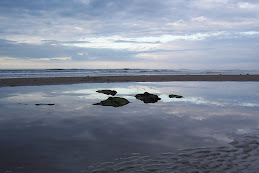My second non-fiction article for an academic journal has been peer reviewed - a new experience for me - and accepted. I am pleased, of course. I am also astounded by the terms under which it appears all such publications operate.
Not only do academic journals not pay their authors, but they also insist on obtaining all rights in anything they publish. What? Are they really thinking of making a film out of my piece, or perhaps a cartoon? Will they honestly seek to have it translated into Russian or Korean? It seems extraordinary that they should want to attain all these rights (for the full length of copyright, ie for 70 years after my death) and do nothing with them. Surely all they really need is world English language serial, quotation/anthology and digital rights.
When I raised my misgivings, I was told that they would permit reproduction in author's other work (ie I would be allowed to quote myself in my own writing) and that in years gone by I would have been expected to pay to see my words in print.
I think it was being suggested that I should learn to be more grateful!
Thursday
I've been poorly this week and suddenly I've become very aware of my body, each twinge, each growl, each grumble. For someone who lives so much in her head, this is an odd sensation. Normally my body just gets on with its job of carrying my mind around. This week, it decided not to, and I was non-plussed.
Scarborough has just hosted its annual literature festival (www.scarboroughliteraturefestival.co.uk). I went to an event hosted by Amnesty International to hear Rouhi Shafi, an Iranian writer, speak. It was sobering to be reminded that I may feel sharply stabbed when people unfairly criticise or - more often - ignore my writing, but, in reality, my life is not in danger. Unlike writers from countries across the world who risk harassment, imprisonment, torture and death by expressing themselves. The pen is indeed mighty and feared by governments of many persuasions.
Scarborough has just hosted its annual literature festival (www.scarboroughliteraturefestival.co.uk). I went to an event hosted by Amnesty International to hear Rouhi Shafi, an Iranian writer, speak. It was sobering to be reminded that I may feel sharply stabbed when people unfairly criticise or - more often - ignore my writing, but, in reality, my life is not in danger. Unlike writers from countries across the world who risk harassment, imprisonment, torture and death by expressing themselves. The pen is indeed mighty and feared by governments of many persuasions.
Tuesday
I have finally moved into my Spring/Summer schedule, promising myself at least ten hours of creative time a week. But what is creative time? Is it only sitting at a table with pens and paper or typing at a keyboard? Or can it include walking to the sea and eating an ice cream? Or going to the theatre and listening to poetry? What, in fact, is not a creative activity, except perhaps doing the washing up? And even then, that can be a moment for fermenting or composting what has gone before. Ten hours appears an achievable goal after all.
I have also bought Poetry as Method, reporting research through verse (Sandra Faulkner, Left Coast Press, Walnut Creek, CA). (I've just noticed, what an evocative place to locate a publisher!) I've only started to read the first chapter, but the book (as its blurb says) 'takes an interdisciplinary approach to using and creating poetry for conducting and reporting social research'.
Sacrilege surely, even the mere thought of using poetry. Are we not the instrument of such a divine art rather than the other way round? And to connect it to something as calculated as research, doesn't seem right.
Yet, as poets, we seek to delve into our own and others' humanity to root out some universal truths and communicate them on. With our words we attempt to create sense and meaning of our experiences, in order that others might do the same. Are these not good definitions of the work of a researcher?
I have also bought Poetry as Method, reporting research through verse (Sandra Faulkner, Left Coast Press, Walnut Creek, CA). (I've just noticed, what an evocative place to locate a publisher!) I've only started to read the first chapter, but the book (as its blurb says) 'takes an interdisciplinary approach to using and creating poetry for conducting and reporting social research'.
Sacrilege surely, even the mere thought of using poetry. Are we not the instrument of such a divine art rather than the other way round? And to connect it to something as calculated as research, doesn't seem right.
Yet, as poets, we seek to delve into our own and others' humanity to root out some universal truths and communicate them on. With our words we attempt to create sense and meaning of our experiences, in order that others might do the same. Are these not good definitions of the work of a researcher?
Subscribe to:
Comments (Atom)

